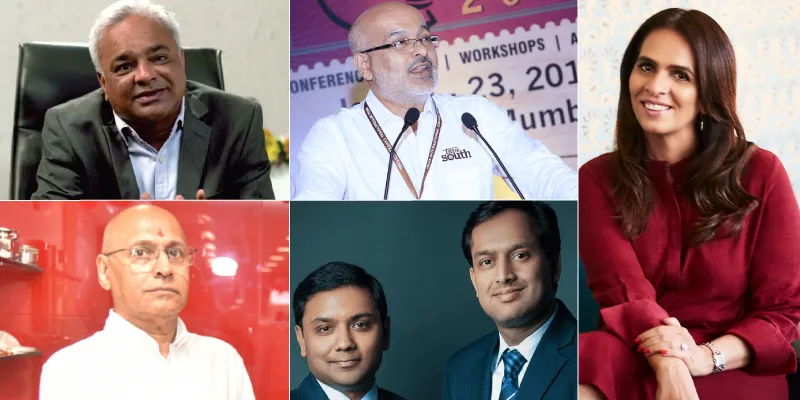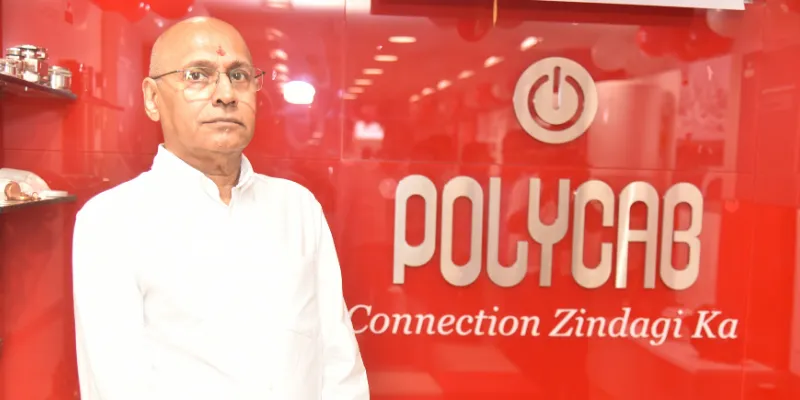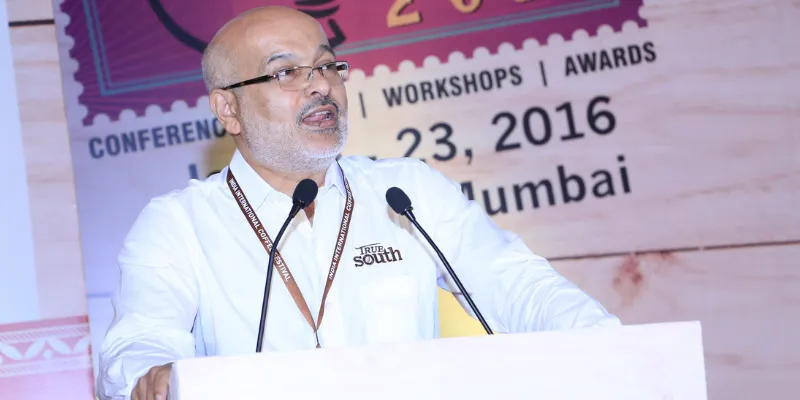Mother’s Day: 5 SMB entrepreneurs whose mothers set them on the path to success
From helping their children develop an interest in a certain product or service, to giving them ideas for a business, many mothers have inspired their sons and daughters to become entrepreneurs. This Mother’s Day, read about five such successful entrepreneurs.

Mothers are almost always the most important and influential figures in a child’s life. They represent the earliest physical and emotional bonds that a child develops.
In many emerging and patriarchal societies, a mother’s role is often limited to housekeeping and taking care of children. It is generally assumed that fathers have more influence over the financial decisions of the household, and the onus of setting career-related examples for the children.
However, mothers can also inspire their daughters and sons to become career-oriented, with some even pushing the envelope for entrepreneurship than taking up a stable job.
This Mother’s Day, SMBStory brings you five exclusive stories of SMB entrepreneurs whose mothers inspired them, and helped them succeed.
Anita Dongre - House of Anita Dongre

Anita Dongre, Chief Creative Officer, House of Anita Dongre
The women in Anita Dongre’s Sindhi family all played stereotypical roles of wives and mothers. None of them worked jobs or started their own ventures.
Her mother, Pushpa Sawlani, used to stitch clothes for Anita and her siblings. This impacted Anita’s life in a big way - looking at her mother stitching clothes, Anita developed a deep interest in fabrics and fashion.
Growing up in Mumbai, she started noticing women who had corporate careers or were entrepreneurs. And while this inspired her, it also made her realise that there was no Indian brand that made affordable workwear for them.
She decided to take her interest in fashion and turn it into a clothing brand for the modern, working woman.
“I started my business in 1995 with just two sewing machines and a loan from my father. My sister and I would work out of a small, 300 square foot area and make western outfits for women,” she says.
This was the beginning of Mumbai-based ‘AND’ Designs, which, in 2015, became the House of Anita Dongre. Today, it is a venture that has a multi-dimensional portfolio with brands such as AND, Global Desi, Anita Dongre Bridal Couture, Anita Dongre Grassroot, and Anita Dongre Pink City.
Its retail turnover was Rs 800 crore in 2019-20.
Prakash Agarwal - Mysore Deep House Perfumery

Ankit Agrawal (left), Director and Partner, MDPH, and Anshul Agarwal (right), Partner, MDPH
Even seven years after Prakash Agrawal quit his sales assistant job at a textiles store in Indore, he couldn't find success as an entrepreneur. Prakash’s mother didn’t want him to continue manufacturing soaps and detergents, and failing.
She wanted her son to pursue a stable job in the textile shop. Instead, she ended up making him all the more adamant to succeed as an entrepreneur.
One fine day in 1992, Prakash’s mother told him that because he couldn’t succeed as a manufacturer, he should become a distributor for any established agarbatti (incense sticks) brand.
He took this as a challenge instead, wanting to prove his mother wrong by becoming a successful manufacturer. But even Prakash had to admit that selling incense sticks was a good idea.
His son Ankit Agrawal says: “My father did not have any capital. In 1992, he borrowed Rs 5 lakh from some relatives to start an agarbatti manufacturing business – Mysore Deep Perfumery House (MDPH) and agarbatti brand Purab Paschim Uttar Dakshin.”
Prakash began making agarbattis out of a small garage in Indore. His mother joined him to supervise the labour and production processes.
Over the years, Prakash’s company saw immense success. Presently, the company processes over three crore incense sticks, and sells 15 lakh retail packs of Zed Black agarbattis in India every day. For 2019-2020, it is targeting a turnover of Rs 400 crore.
Yatin Jain - Odhni

Puneet Jain and Yatin Jain, Directors, Odhni
In 1999, wanting to do something different from their existing family business, and observing the gap in the Indian fashion market, sisters Anju and Shashi launched Odhni – a women ethnic wear brand.
Yatin Jain (37), Director of Odhni, and Shashi’s son, says, “My mother and my taiji (aunt) started from a small 500-sqft saree retailing store. They wanted to step out of the house and use their time and talent, and my father supported them. He poured in Rs 15 lakh from his savings and Odhni was started.”
Later, Puneet Jain (cousin) and Yatin entered the business when they were still in college, after which the founders happily passed on the responsibilities to them.
Odhni manufactures and sells ethnic women garments including suits, sarees, gowns, Indo-Western kurtis, and accessories. The company outsources some of its designs to weavers across Farukkabad, Mumbai, Surat, Kolkata, and more.
Odhni’s flagship store, covering an area of 20,000-sqft, is located in Pitampura, Delhi, and is one of the largest retail stores for women apparel in North India. Today, Odhni has three exclusive stores in Pitampura, Vikas Marg, and Kohat Enclave, all covering a combined total area of 50,000-sqft. Store, and a team of 400 people.
Odhni records an annual turnover of Rs 80 crore.
Inder Jaisinghani - Polycab

Inder Jaisinghani, Chairman and Managing Director, Polycab
Inder Jaisinghani was 15 years old when his father, Thakurdas Jaisinghani, passed away. It could not have been easy for his mother to ask Inder to quit his studies and take over the family business started by his father.
The Jaisinghani family, who are Sindhis, ran Sind Electric Stores, a small hardware and electrical store in Mumbai, which sold fans, lights, switches, and wires. It was located in Lohar Chawl – Mumbai’s epicentre for electrical goods and products, and a trading zone.
Inder did not want to let his mother down. And he also knew he wouldn’t be alone when he took over the business. His older brothers, Girdhari and Ajay, and his younger brother Ramesh would team up in the business journey.
Inder said yes, joined the family business, and alongside his brothers, started a firm named Polycab in 1983 to scale the family business and manufacture electrical goods, on a large scale, in Gujarat.
The company’s beginning was far from glamorous or fancy. However, today, it reaps phenomenal rewards. The company last clocked a turnover of Rs 7,985 crore but it plans to surpass this number soon.
Harold Pereira - TrueSouth

Harold Pereira, Founder, TrueSouth
Harold Pereira grew up watching his mother prepare some coffee decoction for herself before she went to bed every night. In the mornings, it was a cup of coffee for her, and off to church.
At times, if she had forgotten to perform this activity at night, she would miss her coffee and her day just wouldn’t start right. Harold wondered why she did not just make the decoction in the morning.
“Little did I understand then about the time, skill, and effort required to make a decoction. A freshly brewed decoction is always the best, as the profile changes within two to three hours, but households compromised and made it in the night to have the decoction ready in the morning,” he says.
And, this got him thinking: why can’t filter coffee be filterless? Harold then started experimenting by preparing instant filter-coffee decoctions, without preservatives, which would taste similar to a freshly brewed filter coffee. It took him 16 long years to come up with the product, and today, his brand TrueSouth is among the first to launch this never-before-seen product.
The company exports its products to markets outside the country, and recently managed to make inroads into the UAE and UK. TrueSouth is also available in multiple quick-service restaurant (QSR) chains across the country, and is listed on Amazon and Bigbasket.
Edited by Aparajita Saxena







